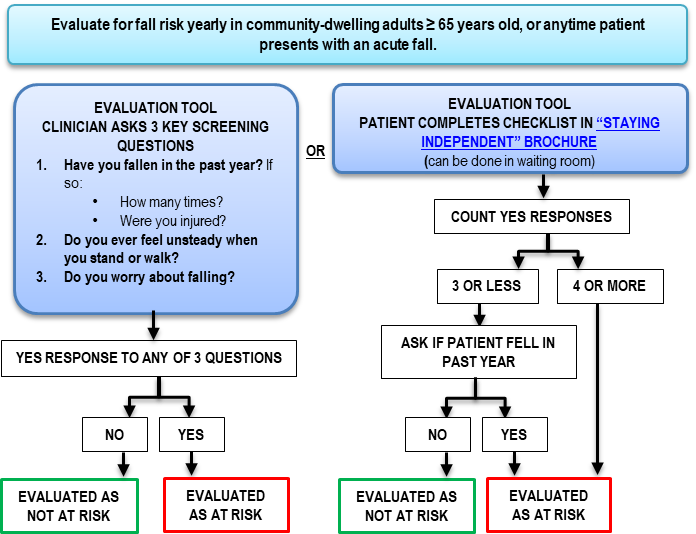Dementia Fall Risk Can Be Fun For Everyone
Dementia Fall Risk Can Be Fun For Everyone
Blog Article
The Single Strategy To Use For Dementia Fall Risk
Table of ContentsNot known Facts About Dementia Fall Risk7 Easy Facts About Dementia Fall Risk ExplainedThe Only Guide for Dementia Fall RiskFascination About Dementia Fall RiskDementia Fall Risk Can Be Fun For Anyone
You could be worried since you have actually had an autumn prior to or because you have actually discovered you're starting to feel unsteady on your feet. You could have seen changes to your health and wellness, or just seem like you're reducing a little. Whatever the factor, it isn't uncommon to become careful and lose self-confidence, and this can quit you doing things you made use of to do and make you feel a lot more separated.If you have actually had an autumn or you've begun to really feel unsteady, inform your medical professional also if you feel fine or else. Your doctor can check your balance and the method you walk to see if improvements can be made. They may have the ability to refer you for a drops threat assessment or to the drops prevention solution.
This information can be obtained through interviews with the person, their caregivers, and a review of their medical documents. Begin by asking the private regarding their history of drops, including the frequency and scenarios of any kind of current drops. Dementia Fall Risk. Ask about any type of mobility issues they might experience, such as unsteady or trouble walking
Conduct a complete review of the individual's medications, paying specific interest to those known to increase the risk of falls, such as sedatives or medicines that reduced high blood pressure. Identify if they are taking numerous medicines or if there have been current adjustments in their medicine routine. Assess the person's home environment for prospective dangers that might boost the threat of drops, such as inadequate lights, loose rugs, or absence of grab bars in the bathroom.
Dementia Fall Risk Can Be Fun For Anyone
Overview the individual with the loss danger assessment type, explaining each question and tape-recording their actions accurately. Guarantee that the individual comprehends the purpose of the evaluation and really feels comfy supplying sincere responses. Calculate the overall risk score based upon the feedbacks supplied in the assessment kind. Establish the person's risk category (low, tool, or high) based upon the overall rating and the presence of automatic risky status elements.
This strategy might consist of workout programs to boost stamina and balance, medicine modifications, home alterations, and recommendations to various other specialists as required. On a regular basis keep an eye on the individual's progress and reassess their threat of falls as needed. Modify the treatment strategy based upon adjustments in their health and wellness standing or home atmosphere. Supply recurring education and assistance to promote safety and security and decrease the threat of falls in their everyday living tasks.
Many researches have revealed that physical treatment can assist to reduce the danger of falling in grownups ages 65 and older. In a new research (that considered drops risk in ladies ages 80 and older), researchers determined the financial influence of choosing physical therapy to avoid drops, and they found that doing so saves $2,144, including all the surprise prices of your time, pain, missed out on life events, and the bucks paid for services.
The Ultimate Guide To Dementia Fall Risk
Examining your heart price and high blood pressure dimensions at rest and while you change settings (from resting or existing to standing). An easy test of your thinking (cognitive) abilities. Assessing your balance, strength, and walking ability. An easy vision test. Evaluating your feet and shoes. A home safety assessment. Based upon the assessment results, your physical therapist will develop a strategy that is tailored to your particular needs.
Older grownups who have difficulty strolling and chatting at the very same time go to a higher risk of dropping. Dementia Fall Risk. To help enhance website link your security during everyday tasks, your physical specialist may develop a training program that will test you to keep standing and strolling while you do one more job. Examples include walking or standing while counting in reverse, having a conversation, or bring a bag of groceries
Set objectives for enhancing their physical task. Exercise extra to enhance their toughness and equilibrium. These programs usually are led by volunteer trainers.
What Does Dementia Fall Risk Mean?

Measles, or rubeola, is a very contagious, severe viral transmittable disease created by the measles infection. Some people think about measles as simply a rash and high temperature that gets rid of up in a couple of days; however, measles can create significant wellness problems, especially in youngsters more youthful than 5-years-old. The very best defense versus measles is the measles, mumps, and rubella (MMR) injection.
Autumns are a typical reason for injury among older grownups. According to the CDC, in one year alone, fall-related injuries added to over $50 billion in medical prices (Dementia official site Fall Risk). In hospital setups, older grownups are at particularly high danger of drops since their minimized wheelchair from being constrained to an area or bed.
Dementia Fall Risk - An Overview

She has no history of falls, her stride is constant, and official source she nullifies with no issues. The previous nurse states that she calls for help to the washroom when she needs to go.
Instances of common autumn interventions/measures consist of: Making certain a client's crucial products are accessible. Putting the individual's bed rails up with the alarm system on. Aiding a client while they're getting up from bed. Past comprehending how to make use of the Johns Hopkins Loss Threat Evaluation Device, it's important that facilities include its use right into a much more detailed fall avoidance strategy.
Report this page